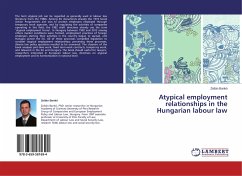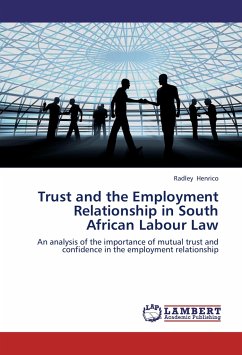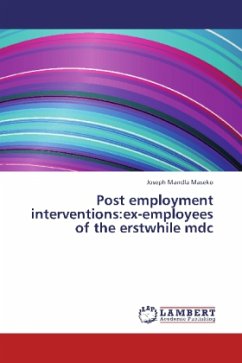
Atypical employment relationships in the Hungarian labour law
Versandkostenfrei!
Versandfertig in 6-10 Tagen
27,99 €
inkl. MwSt.

PAYBACK Punkte
14 °P sammeln!
The term atypical job can be regarded as generally used in labour law literature from the 1980s. Among EU documents already the 1974 Social Action Programme's aim was to protect employees employed through temporary work agencies, and by regulating the activities of companies operating in this field; the 1982 draft directives already use the term atypical employment forms . In Hungary between 1992 and 2012 among others market conditions were formed, employment practices of foreign employers starting their activities in the country began to spread, and Hungary joined the EU. All of these process...
The term atypical job can be regarded as generally used in labour law literature from the 1980s. Among EU documents already the 1974 Social Action Programme's aim was to protect employees employed through temporary work agencies, and by regulating the activities of companies operating in this field; the 1982 draft directives already use the term atypical employment forms . In Hungary between 1992 and 2012 among others market conditions were formed, employment practices of foreign employers starting their activities in the country began to spread, and Hungary joined the EU. All of these processes compelled legislation to consider atypical employment relationships; perceiving these processes, diverse law policy questions needed to be answered. The chapters of the book analyses part-time work, fixed term work contracts, temporary work, and telework in the EU and Hungary. The book should useful for lawyers, researchers interested in European labour law, directives on atypical employment and its harmonization in national level.












